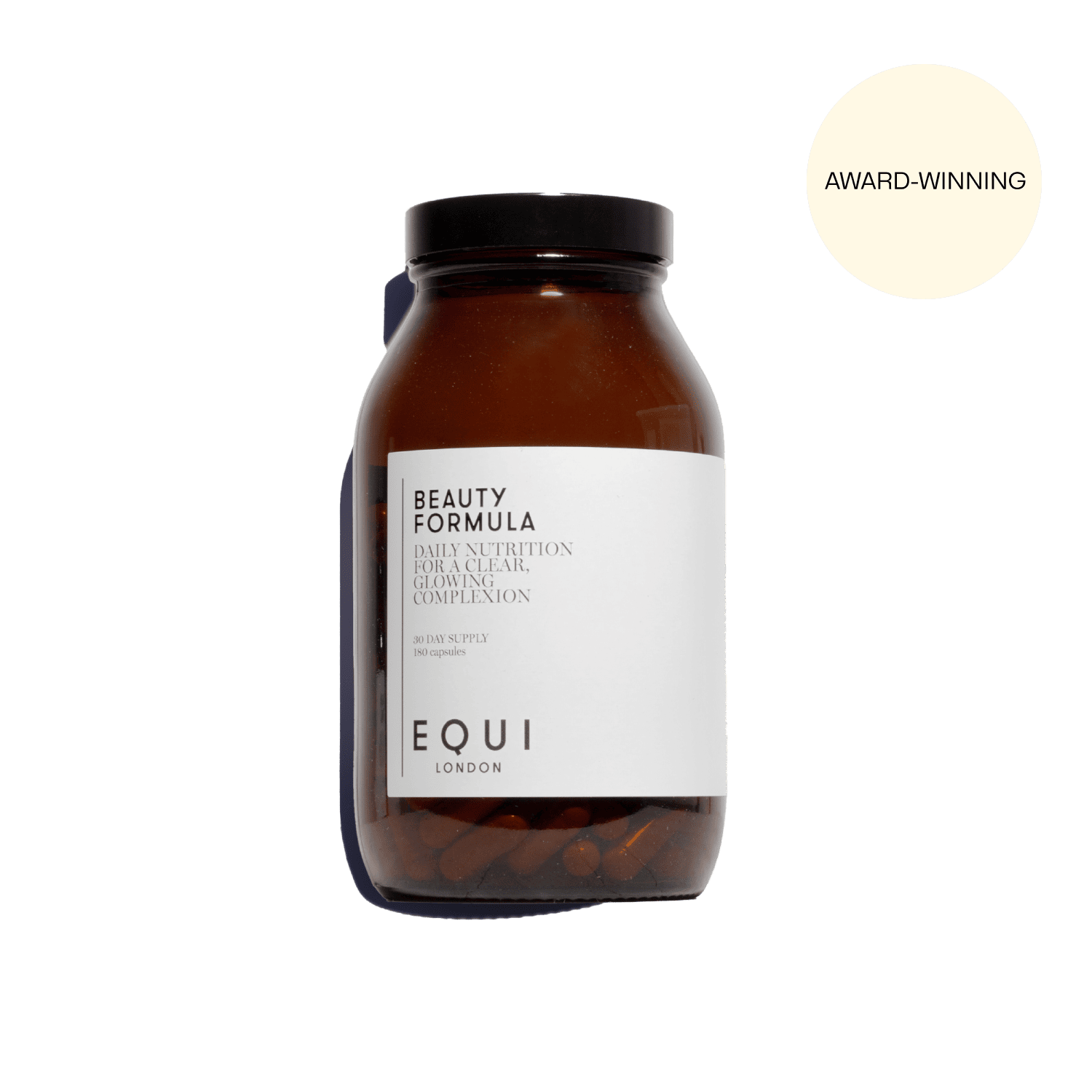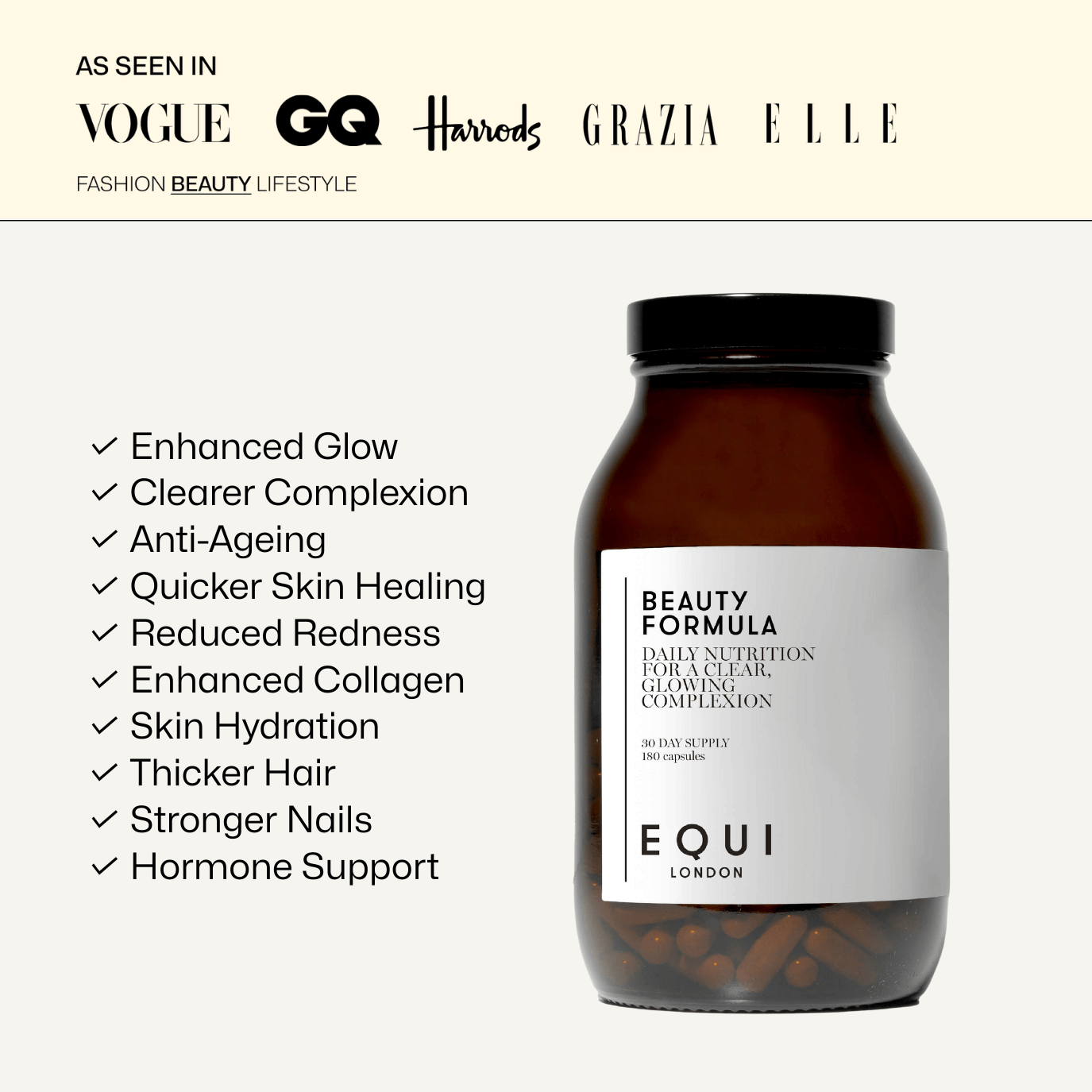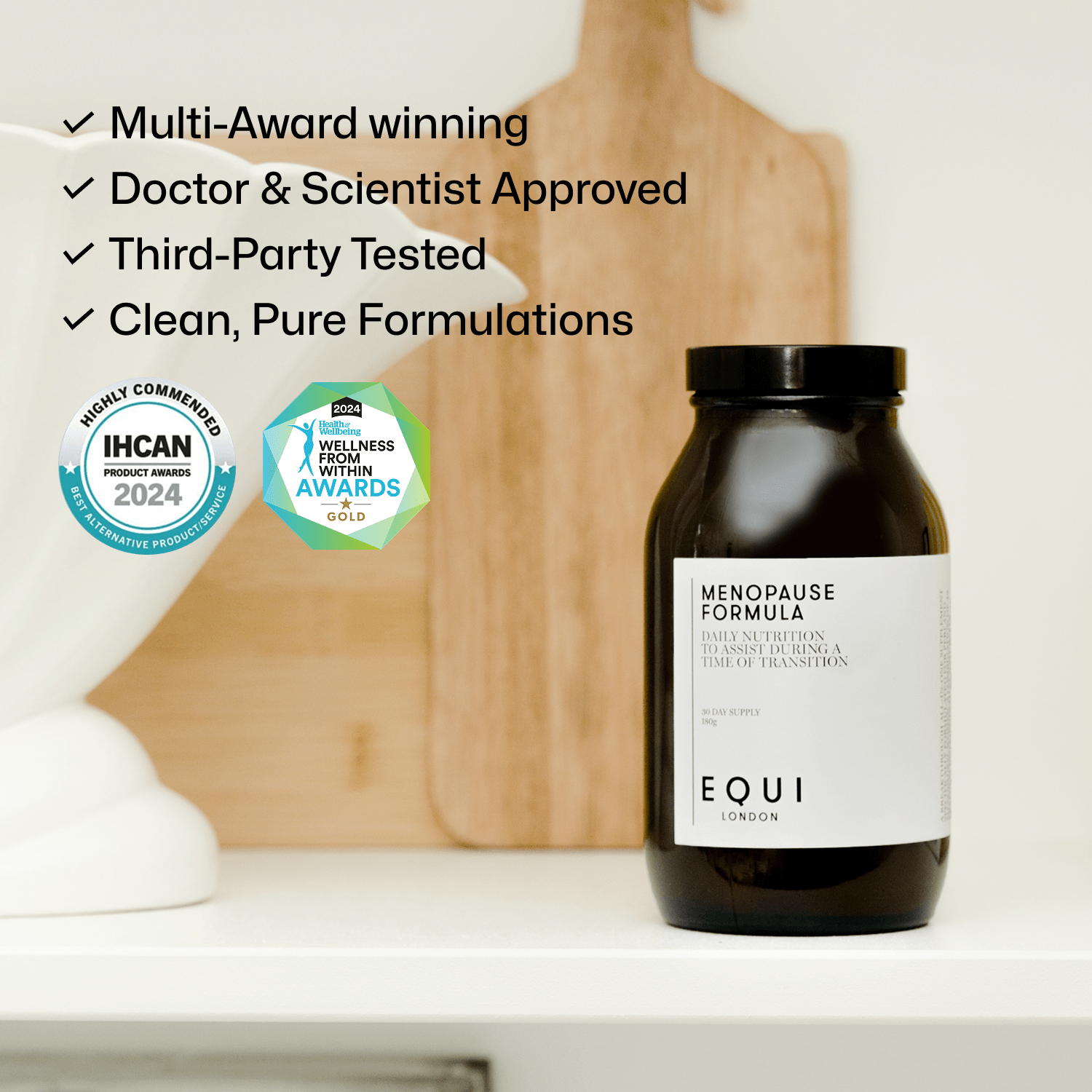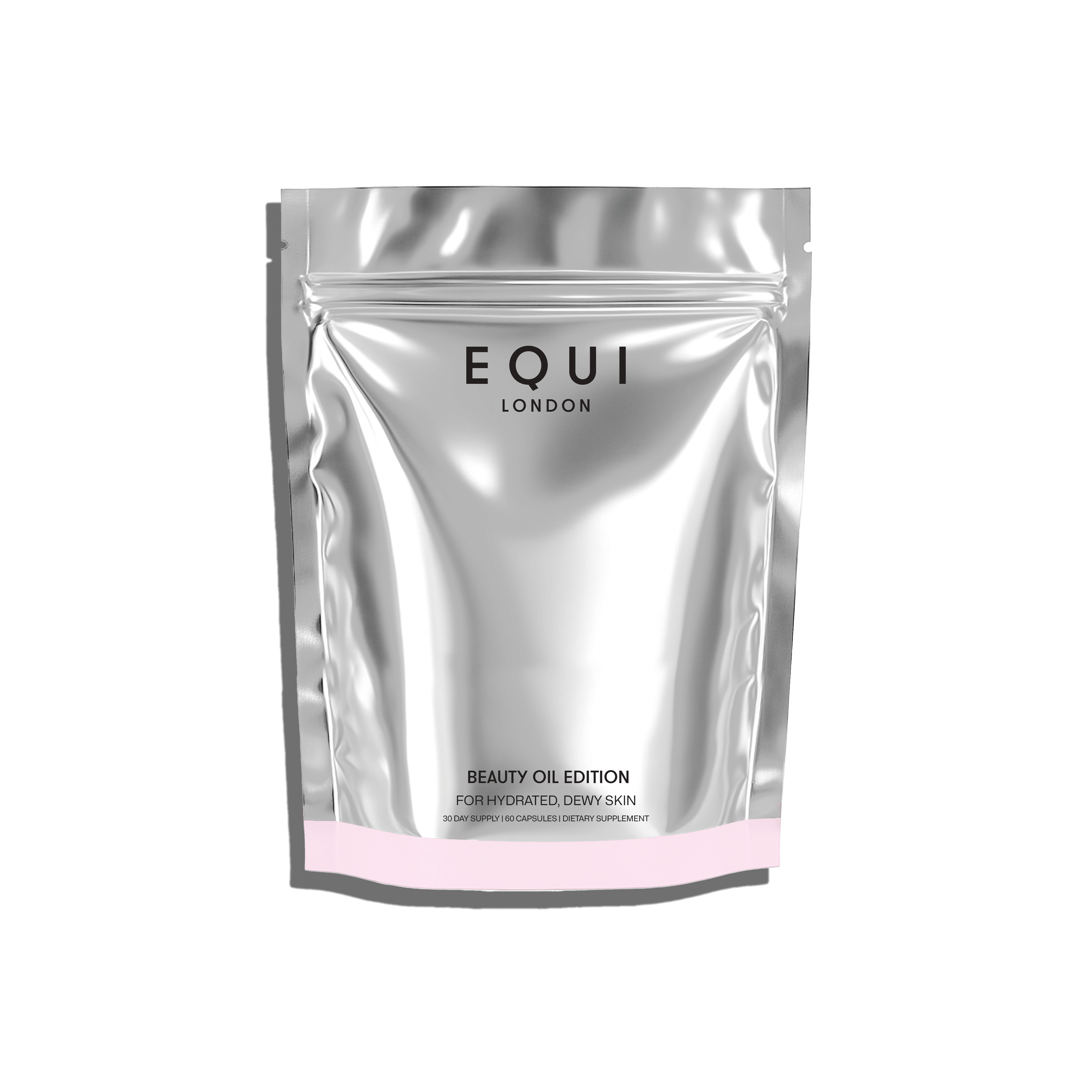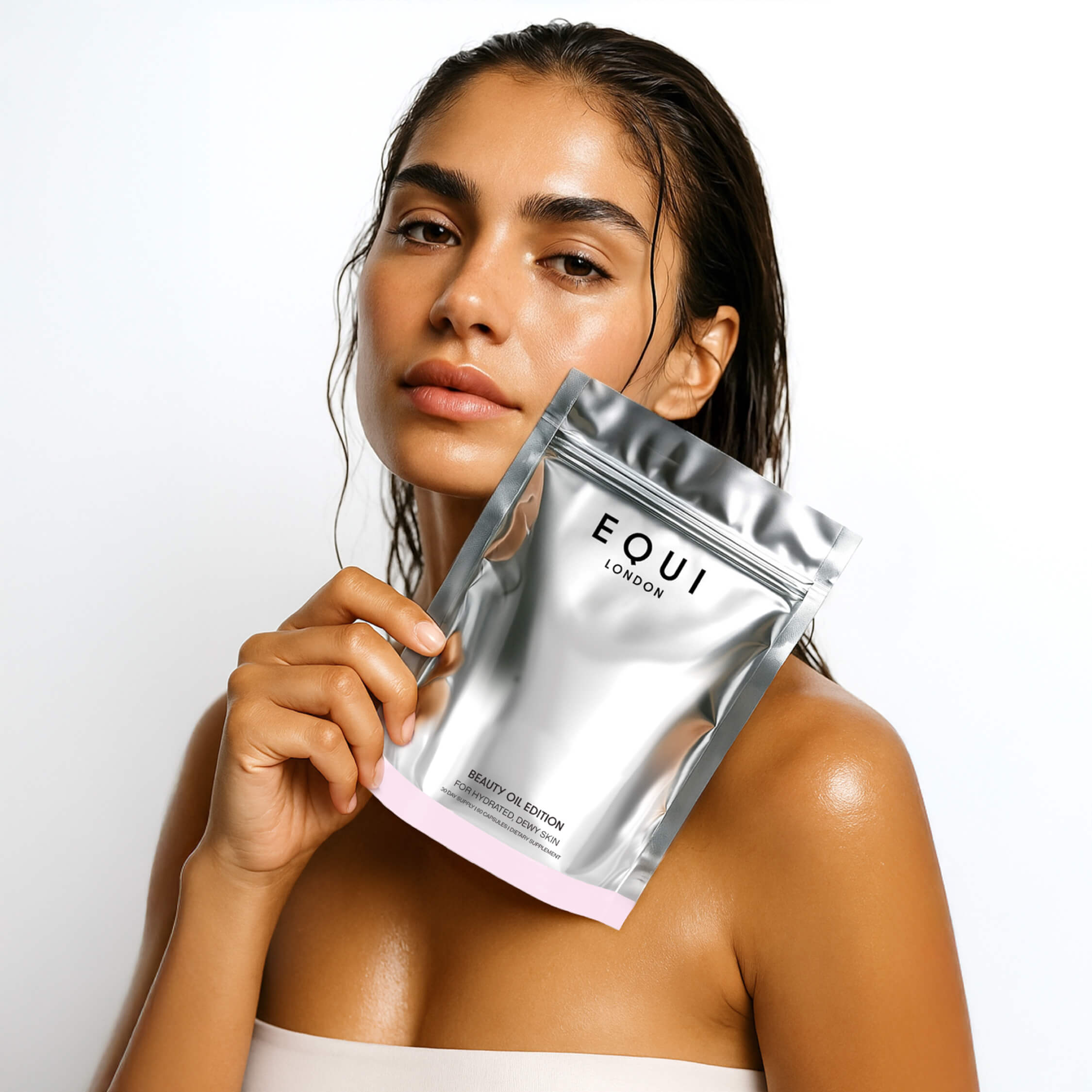Everything You Need To Know About Hair Loss And Hair Shedding In Women
Expert trichologist Anabel Kingsley explains the differences, causes and possible ways to help…
Have you noticed your hair is falling out more than usual lately? Perhaps in the shower or clogging up your hairbrush? Many of us are quick to think we’re experiencing hair loss when in fact it could be hair shedding. The two are in fact very different. Here we speak to consultant trichologist Anabel Kingsley to learn a little more about both, the things we can do to help and why your nutrition is in fact a super powerful tool…
What Is The Difference Between Hair Loss and Hair Shedding?
First things first, it’s worth noting that it’s normal for us all to shed around 50 to 100 hairs a day without even realising it. “Unfortunately, you have to lose at least 15% of the volume of your hair before it’s even noticed. This is referred to as ‘acute telogen effluvium’ and is short term hair shedding which typically usually lasts less than six months,” explains Anabel. If your hair shedding has been going on for a longer period, this is ‘chronic telogen effluvium’. With both cases, chronic or not, the hair that is being shed will always be replaced.
Hair loss on the other hand is when something is preventing your hair from growing. This is known as ‘anagen effluvium’. “Another type of hair loss is ‘cicatricial alopecia’, a rare autoimmune condition which happens when the hair follicle is destroyed and replaced with scar tissue, causing permanent hair loss. With both hair shedding and hair loss, there can be lots of different causes. “Do remember that there is no ‘one size fits all’ – everyone’s hair is very different and your metabolic and genetic profile (as well as your lifestyle) may be very different to someone else,” adds Anabel.
What Are The Main Causes Of Hair Shedding?
The reason why your hair may be shedding can be because of a whole host of reasons, but one of the biggest culprits is increased stress levels. “Many types of stress start out in the mind and then go on to affect your physical wellbeing – including your hair,” says Anabel. “Telogen effluvium is caused by stress and sees an increase in daily hair shedding. This happens when the growth phase of your hair cycle is interrupted by an internal disturbance. It typically occurs around 3 months after the stress ‘event’ or period,” she adds. That being said, if you’re suffering with prolonged periods of stress, hair shedding can unfortunately stick around.
Hormonal imbalances are another issue which can play havoc with your hair. Hypothyroid disorder can lead to hair falling out at a faster rate and not growing back so quickly. Our female hormones can also be a factor - “Oestrogen is a hair-friendly hormone that helps to keep your hair in its 'anagen' or growth phase, for longer,” says Anabel. Post-pregnancy, oestrogen levels begin to drop which is why hair shedding is particularly common at this time. Shedding usually peaks around four months following birth, but the good news is that it tends to then settle down after around nine months. “The menopause also causes oestrogen to fall, meaning you then have a higher ratio of testosterone which can have a negative affect on your hair follicles,” she adds.
Other factors which can cause hair loss include illness, or a weakened immune system and certain medications ortreatments.
And Hair Loss?
Similar to hair shedding, hair loss can also be down to many different things. Unlike hair shedding though, these are often predetermined and can even be hereditary. Age also comes into play here with hair loss becoming more apparent in your older years. Certain hair products and hair styles can also contribute to hair loss. Overuse of heat styling tools can make your hair weak and prone to breakage, as can over-treating or colouring your hair with harsh chemicals. This type of hair loss can be controlled so do be mindful of what you’re using and how you’re handling your hair.
What Are The Best Ways To Help Hair Shedding And Hair Loss?
With both hair shedding and hair loss, Anabel’s best advice is to find out what the underlying cause is by seeking the advice of a specialist trichologist. They will then be able to recommend a bespoke treatment plan which is tailored to you and your hair specifically.
That being said, Anabel suggests optimising each possible factor that can affect your hair growth cycle. “The condition of your scalp also has a profound influence on the growth of your hair,” she adds. “I swear by weekly targeted scalp masks to ensure its in the best condition it can be. Pre-shampoo treatments like Philip Kingsley’s Elasticizer are also a good way of restoring strength and elasticity to strands. Another top tip would be to try and manage your stress levels where possible.” Easier said than done we agree, but it's a good reminder as often this can be the crux of the issue and a very clear physical reminder to slow down and take stock.
Why Is Our Diet So Important When It Comes To Hair Health?
As you know, what we eat can have a big impact on our overall health but especially the quality and condition of our hair. “As hair is a non-essential tissue and hair cells are one of the second fastest growing cells your body makes, is nutritional requirements are high,” says Anabel. “In fact, even a small deficiency can impact the hair." Volume, strength and glossiness are all impacted by nutrition to some extent.
When it comes to good nutrition and identifying what we need, it’s safe to say our co-founder (and nutritional therapist) Alice knows a thing or two, having worked in women's health for the last 10 years in her clinic. “There are several nutrients that are a must if you’re looking to give your hair everything it needs,” she says. “Iron is one of those and women are more predisposed to a deficiency. Some of the best iron-rich foods include red meat, mackerel, edamame, dates and chickpeas."
"Silica is another must as this is needed to make collagen which is vital for hormone balance and supplying your hair follicles with the minerals it needs to remain healthy,” adds Alice. You can find silica in oats, brown rice, flaxseed, avocado, onions and cucumber.
Biotin has also been shown to promote hair growth which is unsurprising since it helps to create keratin - the protein found in our hair. Try upping your intake of beans, pulses, egg yolks, carrots, cauliflower, mushrooms and almonds for a biotin hit. Lastly… zinc has been said to strengthen hair and help with growth and fall-out so eating more poultry, seafood, pumpkin and sunflower seeds, tahini, garlic, cacao and chickpeas could help.
“I fully appreciate that adding all of these foods to your daily diet isn’t always achievable which is why supplementation is such a great tool,” adds Alice. “My best recommendation? Our Beauty Formula. It’s packed full of all of the hair-supporting minerals I mention above (iron, silica, biotin and zinc) as well as collagen, iodine, B12 and plenty more hair loving goodness." It's also got adaptogens to help with stress, if that's your hair issue so can be a real all-in-one support - probably the reason why so many customers tell us their hair feels stronger after 3 months of use.
We are also going to be launching a collagen product for skin, and (wait for it..) HAIR! very soon. So stay in touch to learn more.
Disclaimer: As with all information on Equi London, this information is not a substitute for medical advice. No one diet or supplement regime works for everyone and you should always seek help from a GP and registered health expert before making changes to your diet, or before introducing any supplements.
